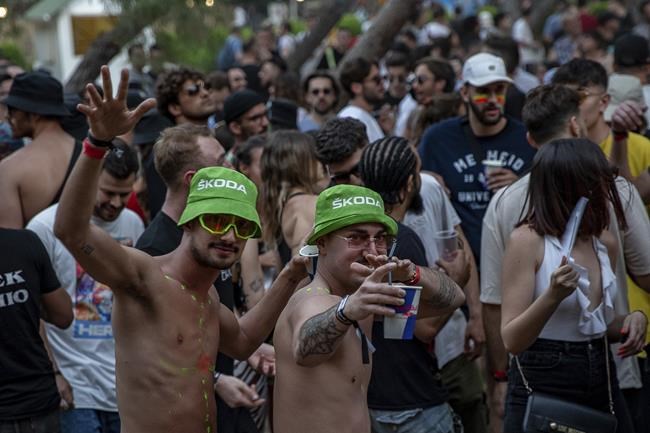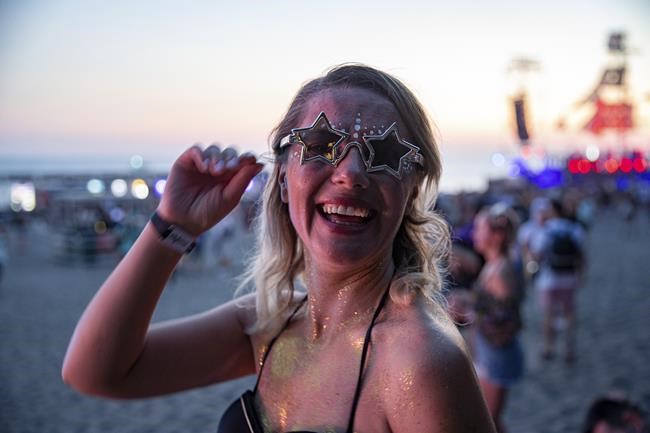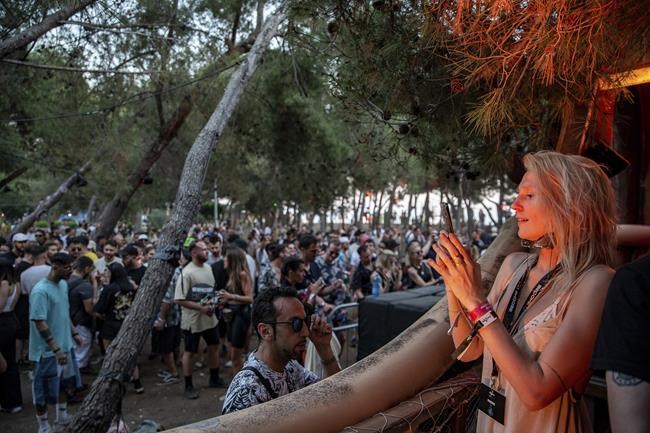Music fans flock to Albania’s beach festival despite virus
Advertisement
Read this article for free:
or
Already have an account? Log in here »
We need your support!
Local journalism needs your support!
As we navigate through unprecedented times, our journalists are working harder than ever to bring you the latest local updates to keep you safe and informed.
Now, more than ever, we need your support.
Starting at $15.99 plus taxes every four weeks you can access your Brandon Sun online and full access to all content as it appears on our website.
Subscribe Nowor call circulation directly at (204) 727-0527.
Your pledge helps to ensure we provide the news that matters most to your community!
To continue reading, please subscribe:
Add Brandon Sun access to your Free Press subscription for only an additional
$1 for the first 4 weeks*
*Your next subscription payment will increase by $1.00 and you will be charged $20.00 plus GST for four weeks. After four weeks, your payment will increase to $24.00 plus GST every four weeks.
Read unlimited articles for free today:
or
Already have an account? Log in here »
Hey there, time traveller!
This article was published 08/06/2021 (1677 days ago), so information in it may no longer be current.
RANA E HEDHUN, Albania (AP) — The Albanian beach site had everything in one place: pine trees, sand, sea, nearby mountains and days of nonstop music.
“It’s very rare that you got all of those things together at one time,” said the director of the open-air Unum music festival, Grego O’Halloran. As an Englishman living in Ibiza, Spain — another magical beach music scene — he knows what he is talking about.
“Albania is the hidden gem of Europe,” he added. “(It’s) an hour, two hours, from almost all of Europe and it’s so beautiful and undiscovered.”

Organizers sold all 10,000 tickets for the June 3-7 festival featuring 50 international and local musicians, as people jumped at the chance to hear nonstop music for five days at Thrown Sand beach, 75 kilometers (45 miles) northwest of the capital, Tirana.
Organizers claimed that everyone at the festival was free of COVID-19 but offered no proof for those claims and no virus checks were apparent.
The main stage near the beach was on top of a sailboat, while another was under the pine trees close to the beach. Tattoos were not required for fans but many sported one or more. Fans came from all across Europe, even as far away as Uruguay.
Last year the festival was cancelled due to the pandemic. This year organizers found it difficult to get musicians from around the Europe due to virus restrictions, but they prevailed.
“(It’s) awesome … crazy … insane to see so many people in one place … (after) sitting in one room in your apartment alone in lockdown,” said German fan Katia Mueller.
The event was possible because of Albania’s low contagion rate. It recorded only two new infections on Saturday. The Foreign Ministry noted there were no pandemic restrictions for anyone wanting to come to Albania.
Albania has many pristine beaches on its 480-kilometer (300-mile) coastline along the Adriatic and Ionian Seas, and during the last few years tourism has turned into a key industry for one of Europe’s poorest countries.
Neighboring Albanians from Kosovo remain the main source of tourists so far, often accompanied by Polish and Czech groups, Serbs and Belarussians.

Franco Rodrigues of Uruguay follows a lot of music and knew many of the musicians at the festival, which he hoped was the beginning of a worldwide return to live events.
“It’s great that finally we can come back and play again,” he said.
The motto of the festival was for people to become “One” and unite over music. Some said music was more important than most people realized.
“It was necessary for our mental health,” said Ron Kurtolli, a DJ from Kosovo. “People don’t pay much attention to mental health, but it’s really important for the well-being of everything.”
Samela, a Serb living in Belgrade but born in Prizren, Kosovo, had no time to give her surname but loudly explained how the festival connected people across borders. Albanians and Serbs have been history-long foes.
“I really had this genuine intention to break the prejudice, to break the stigma, to try to connect us about music … I cannot do it the way the music is doing it. But OK, I’m trying now,” she said.
——-
Semini reported from Tirana, Albania.

___
Follow all AP stories on the pandemic at https://apnews.com/hub/coronavirus-pandemic.
___
Follow Llazar Semini at https://twitter.com/lsemini
